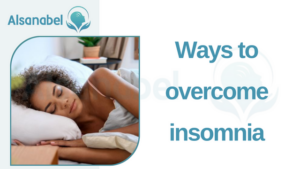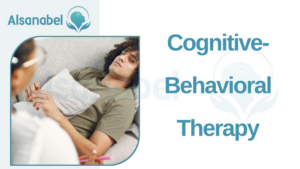Insomnia And The Ways To Overcome 2023
- Category ADHD
Table of Contents
ToggleUnderstanding insomnia
Insomnia is a sleep disorder characterized by difficulty falling asleep or staying asleep, and it affects millions of people worldwide. It can have a significant impact on a person’s overall well-being, leading to daytime impairments such as fatigue, poor concentration, irritability, and impaired memory. Without sufficient and restful sleep, individuals may struggle to perform daily tasks, negatively affecting their productivity, mood, and overall quality of life.
Common causes of insomnia
Insomnia can be triggered by a variety of factors. Stress and worry are among the most common causes, as the mind becomes overactive, making it difficult for individuals to relax and fall asleep. Underlying health conditions, such as chronic pain, breathing problems (like sleep apnea), and mental health disorders (like depression or anxiety), can also contribute to insomnia.
Alcohol and drug use can disrupt the sleep cycle and lead to insomnia. While alcohol may help individuals fall asleep initially, it can disrupt the quality of sleep throughout the night. Additionally, certain medications, such as those for asthma, allergies, and high blood pressure, can interfere with sleep patterns.
Ways to overcome insomnia

Lifestyle Changes
Establishing a regular sleep schedule
One effective way to overcome insomnia is by establishing a regular sleep schedule. Waking up and going to bed at the same time each day helps regulate the body’s internal clock and promotes better sleep. Consistency is key, even on weekends or days off. By sticking to a consistent sleep routine, individuals train their bodies to recognize when it is time to sleep and when it is time to wake up.
In addition to a regular sleep schedule, creating a relaxing bedtime routine can also signal to the body that it is time to sleep. Engaging in activities such as reading a book, taking a warm bath, or practicing relaxation techniques like deep breathing or meditation can help calm the mind and prepare it for sleep. It is important to avoid stimulating activities, such as watching TV or using electronic devices, as these can interfere with the body’s natural sleep-wake cycle.
Creating a conducive sleep environment
Another essential lifestyle change for overcoming insomnia is creating a sleep-friendly environment. The bedroom should be comfortable, quiet, and dark. Regulating the temperature to a cool and comfortable level can also promote better sleep. Investing in comfortable pillows and bedding that support a good night’s sleep can make a significant difference in the quality of sleep experienced.
It is also important to eliminate or reduce sources of noise and light that may disrupt sleep. Using earplugs, blackout curtains, or white noise machines can be helpful in creating a conducive sleep environment. Additionally, individuals should ensure that their sleeping environment is free from distractions, such as electronic devices or work-related materials. The bedroom should be a dedicated space for relaxation and sleep.
By implementing these lifestyle changes, individuals can significantly improve their sleep quality and overcome the challenges of insomnia. It may take some time for the body to adjust to these new habits, especially if they have been suffering from chronic insomnia for a long time. However, with patience and persistence, better sleep and overall well-being can be achieved.
Relaxation Techniques
Deep breathing exercises
One of the simplest and most effective ways to alleviate anxiety and improve insomnia is through deep breathing exercises. The act of taking slow, deep breaths engages the body’s natural relaxation response, helping to calm the mind and promote a sense of relaxation. When practicing deep breathing, it is important to focus on breathing in deeply through the nose, allowing the breath to fill the belly, and then exhaling slowly through the mouth.
This type of breathing helps to slow down the heart rate and activate the body’s parasympathetic nervous system, which is responsible for promoting relaxation and reducing stress. By practicing deep breathing exercises regularly, especially before bedtime, individuals can create a sense of calm and ease that can greatly improve their ability to fall asleep and stay asleep throughout the night.
Progressive muscle relaxation
Another effective relaxation technique for improving insomnia is progressive muscle relaxation (PMR). This technique involves systematically tensing and then releasing each muscle group in the body to promote a deep state of relaxation. To practice PMR, individuals can start by sitting or lying down in a comfortable position. They then begin by tensing and releasing their facial muscles, moving down to the neck, shoulders, arms, hands, chest, back, abdomen, buttocks, thighs, calves, and finally, the feet.
As each muscle group is tensed and released, individuals can focus on the sensation of relaxation and let go of any tension or stress they may be holding in their bodies. PMR can be particularly effective for individuals who have difficulty falling asleep due to muscle tension or racing thoughts. By incorporating PMR into their bedtime routine, individuals can relax both their mind and body, setting the stage for a restful night’s sleep.
Cognitive-Behavioral Therapy
Insomnia is a common sleep disorder that affects millions of people worldwide. It can be characterized by difficulty falling asleep, staying asleep throughout the night, or waking up too early and being unable to fall back asleep. Fortunately, effective treatments are available that can help people fall asleep faster, stay asleep, and feel more rested during the day.

One such treatment is cognitive-behavioral therapy for insomnia (CBT-I). CBT-I is a short, structured, and evidence-based approach to combating the frustrating symptoms of insomnia. It focuses on exploring the connection between the way we think, the things we do, and how we sleep.
Identifying and challenging negative thought patterns
CBT-I involves identifying and challenging negative thought patterns that contribute to insomnia. It aims to help individuals recognize and reframe unhelpful thoughts and beliefs about sleep. For example, if someone believes they will never be able to fall asleep, a therapist will guide them through exercises to challenge that belief and replace it with more realistic and positive thoughts, such as “I have fallen asleep before and I can do it again.”
Implementing sleep restriction techniques
Another technique used in CBT-I is sleep restriction. Sleep restriction involves temporarily reducing the amount of time spent in bed to consolidate sleep and improve sleep efficiency. The idea is to create mild sleep deprivation, which increases the pressure to sleep and can help regulate the sleep-wake cycle. Over time, individuals can gradually increase their time in bed as their sleep improves.
CBT-I also includes other strategies such as stimulus control, which involves creating a sleep-friendly environment and using the bed only for sleep and sex, not for other activities like watching television or working. It also promotes good sleep hygiene practices such as avoiding caffeine and stimulating activities close to bedtime.
By participating in CBT-I, individuals can learn effective techniques to address the underlying causes of their insomnia and develop healthier sleep habits. This therapeutic approach has been proven to be highly effective in improving sleep quality and providing long-term relief from insomnia symptoms.
Over-the-Counter Sleep Aids
Melatonin Supplementation
It’s not always necessary to get a prescription for a sleep aid, says Dr. Gamaldo. There are natural ways to make adjustments to your sleeping habits. One popular natural sleep aid is melatonin, which is available over the counter. Melatonin is a hormone that helps regulate the sleep-wake cycle. Taking melatonin as a supplement can help individuals with insomnia fall asleep faster and regulate their sleep patterns.
Research shows that melatonin supplements may have bigger benefits for individuals with delayed sleep phase syndrome, a condition where individuals fall asleep very late and wake up late the next day. However, it is important to use melatonin sleep supplements wisely and safely. It is recommended to start with a low dose and only take it for a short period, as long-term effects are still not fully understood. It is always best to consult with a healthcare professional before starting any new sleep supplement.
Natural Remedies for Better Sleep
In addition to melatonin, there are other natural remedies that can help improve sleep quality. While scientific evidence for these remedies may be limited, many individuals have found them helpful in promoting better sleep.
Drinking warm milk, chamomile tea, or tart cherry juice before bed is a common practice for individuals with sleep trouble. While there isn’t much scientific proof that these drinks work to improve sleep, there’s no harm in trying them, says Dr. Gamaldo. They may have a soothing effect and help relax the body before bedtime.
Other natural remedies include creating a sleep-friendly environment, practicing good sleep hygiene, and incorporating relaxation techniques such as deep breathing or meditation. These strategies can help signal to the body that it’s time to sleep and promote a more restful night’s rest.
It’s important to note that natural remedies may not work for everyone, and individual results may vary. If sleep troubles persist or worsen, it is recommended to consult with a healthcare professional for further evaluation and guidance on finding the right treatment approach.
Prescription Medications
Types of Prescription Sleep Medications
When it comes to treating insomnia, prescription medications can be a viable option for many individuals. There are several types of prescription sleeping pills that can help you fall asleep easier or stay asleep longer, or both. Some commonly prescribed medications include:
- Ramelteon (Rozerem): This medication works by targeting the sleep-wake cycle, helping individuals fall asleep faster and maintain a regular sleep pattern.
- Suvorexant (Belsomra): Suvorexant is a newer medication that works by blocking receptors that promote wakefulness. It can help individuals both fall asleep and stay asleep throughout the night.
- Temazepam (Restoril) and Triazolam (Halcion) are benzodiazepines that can effectively induce sleep and promote relaxation.
While these Prescription Sleep Medications have proven effectiveness, it is essential to consult with a healthcare professional before trying any new treatment. They will be able to assess your specific needs and determine the most suitable prescription medication for you.
Consulting with a Healthcare Professional
Before starting any prescription sleep medication, it is crucial to have a thorough discussion with your healthcare professional. They will consider various factors such as your medical history, potential drug interactions, and the severity of your insomnia.
Moreover, healthcare professionals recognize the need for more treatment options and better training in managing insomnia. They consider the holistic approach in addressing not only the symptoms of insomnia but also the comorbidities that can contribute to sleep disturbances, such as anxiety, depression, and physical disorders.
It is important to note that prescription sleep medications are not a long-term solution for insomnia. They should be used as a short-term measure while underlying causes and non-pharmacological approaches are explored. Your healthcare professional can help develop a comprehensive treatment plan that may include lifestyle changes, sleep hygiene practices, and natural remedies.
Remember, open communication with your healthcare provider is crucial when starting any new treatment for insomnia. They will guide you through the potential benefits, risks, and ensure that the prescribed medication aligns with your specific needs.
Alternative Therapies

Acupuncture for improving sleep quality
For individuals seeking alternative options to treat insomnia, acupuncture is a promising therapy that has gained popularity. As many as one out of four people with insomnia have turned to complementary and alternative medicines such as acupuncture. This ancient Chinese practice involves inserting thin needles into specific points of the body to restore the flow of energy and promote overall well-being.
Acupuncture is considered a safe and widely available treatment for insomnia. It has been shown to be effective in improving sleep quality and reducing sleep disturbances. In a systematic review of randomized controlled trials, acupuncture was found to be a successful method in the treatment of insomnia.
Various acupuncture points can be targeted for treating insomnia, but a combination of points around the head, arms, and legs is recommended. The Evidence-Based Guideline of Chinese Medicine for Insomnia suggests using three main points: HT7 (Shenmen), GV20 (Baihui), and SP6 (Sanyinjiao). However, it is important to note that some studies published in Chinese were not included in the review due to limited access to Chinese databases.
If you are considering acupuncture as a treatment for your insomnia, it is essential to consult with a licensed acupuncturist. They will be able to assess your specific condition and create an individualized treatment plan tailored to your needs.
Aromatherapy for relaxation and promoting sleep
Another alternative therapy that can aid in overcoming insomnia is aromatherapy. This practice involves using essential oils derived from plants to promote relaxation and improve sleep quality.
Certain essential oils, such as lavender, chamomile, and valerian, have been shown to have calming effects on the mind and body, helping to induce sleep and reduce anxiety. These oils can be used in various ways, including through massage, inhalation, or adding them to bathwater.
To utilize aromatherapy for promoting sleep, you can try adding a few drops of your preferred essential oil to a diffuser or pillow. Inhaling the scent before bedtime can help create a soothing environment and prepare your body for sleep.
It should be noted that while aromatherapy can be a helpful adjunct to promote better sleep, it may not be a standalone solution for chronic insomnia. It is best used in combination with other approaches, such as good sleep hygiene practices and relaxation techniques.
Combining strategies for better sleep
When it comes to overcoming insomnia and achieving better sleep quality, it is often beneficial to combine different strategies. For instance, incorporating cognitive-behavioral therapy (CBT) along with alternative therapies can provide comprehensive and effective treatment. CBT helps individuals identify and change negative thoughts and behaviors associated with sleep, while alternative therapies such as acupuncture and aromatherapy can promote relaxation and enhance sleep.
Additionally, adopting good sleep hygiene practices is essential for managing insomnia. This includes establishing a consistent sleep schedule, creating a conducive sleep environment, avoiding stimulants close to bedtime, and engaging in relaxation techniques before sleep.
Long-term benefits of overcoming insomnia
Overcoming insomnia not only improves sleep quality but also has long-term benefits for overall health and well-being. Adequate sleep plays a crucial role in maintaining a healthy immune system, enhancing cognitive function, and reducing the risk of chronic conditions such as obesity, diabetes, and cardiovascular disease. By addressing and managing insomnia, individuals can experience improved mood, increased productivity, and a better quality of life.









